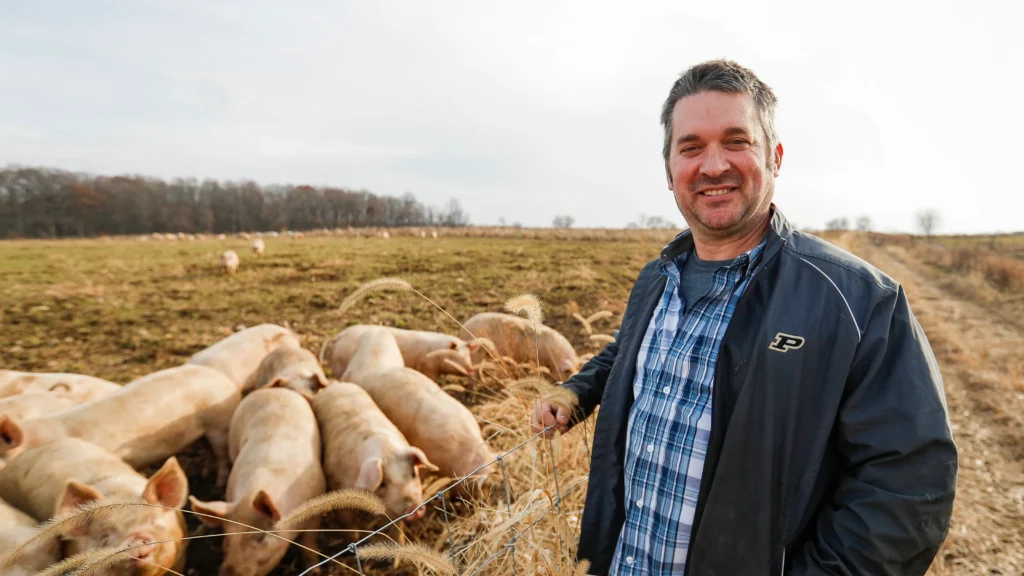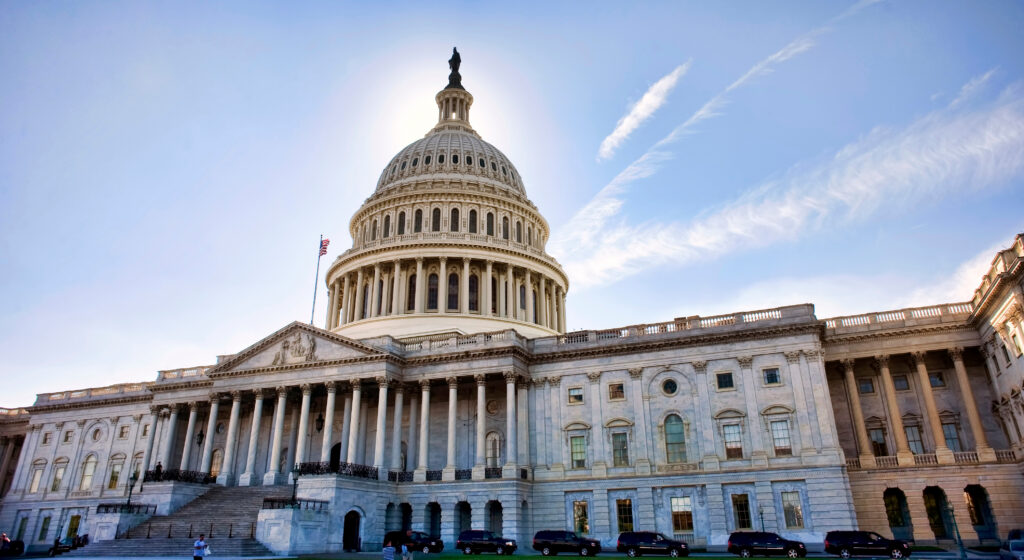Amid the ongoing fight to stop the disastrous proposed Kroger-Albertsons merger, Farm Action’s Angela Huffman discussed the downstream effects of retail consolidation on farmers, consumers, and other small retailers during the Institute for Local Self-Reliance’s (ILSR) recent webinar.
Angela spoke alongside FTC Commissioner Alvaro Bedoya, independent grocers Aaron Johnson and Michael Gay, and community leader Reverend Dr. Donald Perryman as they discussed how retail consolidation harms nearly everyone except for company shareholders.
As mega-retailers like Walmart and Dollar General expand across the country, independent grocers and farmers are driven out of business, consumers pay more, and communities are left with fewer jobs and decreased access to nutritious foods.
How Did We Get Here?
Today a shocking 75 percent of U.S. consumers purchase their groceries from Walmart — but this is a recent shift. Until the 1990s, most people shopped in local or regional grocery stores.
But the federal government’s hands-off approach to antitrust enforcement over the last 40 years has caused many of these independent stores to disappear. If the Kroger-Albertsons merger goes through, just five retailers will control about 55 percent of grocery sales. With independent grocers rapidly disappearing, we’re left with just a handful of grocery giants with abusive levels of power — and the consequences ripple across the food chain.
Farmers Feel the Sting
For farmers, the loss of a local grocer means the loss of a purchaser. As retail giants take over communities, farmers often have only one — or a few at most — willing buyers for their products. This often leads to farmers getting paid less for their products.
The trouble is that powerful mega-retailers are able to strongarm suppliers for lower prices, squeezing farmers in the process. Through the use of abusive mechanisms like “sweetheart deals,” giant retailers use their outsized purchasing power to compel suppliers like Tyson Foods to give them deep discounts — even as other retailers must pay higher prices for the same products. This defies the Robinson-Patman Act, which prohibits anticompetitive practices like price discrimination. Even so, retailers have been able to get away with this abuse because the DOJ and FTC haven’t filed cases for more than 30 years.
Since suppliers can’t afford to lose major purchasers like Walmart, they give in to the giant grocers’ pricing demands. To balance their books, those suppliers turn around and squeeze the farmer or hike the prices to the smaller grocer — cutting further into the meager 15 cents farmers earn from every dollar consumers spend in the supermarket. As John Tyson of Tyson Foods told rancher Mike Callicrate, “You should be suing Walmart. They tell us what they will pay, and we have no choice but to pay you less.” While Tyson and other corporate meatpackers aren’t without blame for profiteering, his point is valid.
The rise of dollar stores is particularly damaging to farmers because these stores typically do not buy meat and produce. If they do, they don’t buy it from local farmers. With ever-dwindling options, some farmers resort to selling to large wholesalers and processors — but many lack the scale to do so.
We’ve seen this play out before. When Albertsons acquired Safeway in 2015, Albertsons kept contracts only with its largest produce suppliers and dropped most of the smaller Safeway produce suppliers. And when Walmart made the decision to own and control its own dairy supply instead of purchasing through Dean Foods, it dropped Dean Foods — leading to the company canceling more than 100 contracts with dairy farmers across eight states. Within two years, Dean Foods was bankrupt.
If the government doesn’t start enforcing antitrust laws, there isn’t going to be anyone in the supply chain except a handful of giant grocery stores.
Retail Consolidation Is No Bargain for Consumers
Today the U.S. has one-third fewer grocery stores than it did 25 years ago. With less competition, big retailers and food processors use their dominant position to hike up prices on consumers. The proof is in their profits.
Sky-high inflation has been hammering consumers’ wallets since the pandemic. Food prices increased by more than 11 percent last year alone — the highest yearly percent change since 1974. Yet the last couple of years have also been the most profitable for big food retailers and manufacturers since 1950. While countless independent and regional grocers struggled to stay afloat during the pandemic, Walmart raked in $341 billion in revenue — almost three percent higher than the previous year.
In the absence of other grocers, consumers must submit to mega-retailers’ price hikes. In November 2021, Kroger’s chief financial officer said that they were “very comfortable with our ability to pass on the increases that we’ve seen at this point. And we would expect that to continue to be the case.”
Rural Communities and Workers Get Burned
Rural America has been hit especially hard as retail giants like Walmart and Dollar General have run independent grocers out of business, extracting wealth from local economies along the way. A recent USDA report shows the percentage of grocery sales from the nation’s top 20 retailers more than doubled from 1990 to 2020, and that this consolidation was more pronounced in rural areas. While 76 counties nationwide don’t have a single grocery store, 34 of those counties are in the Midwest and Great Plains.
The exit of independent grocers devastates our already struggling rural communities. Health problems increase as access to healthy fresh fruit and vegetables diminishes, and packaged, highly processed foods found at convenience stores become more accessible — especially when dollar stores take over. And in many rural towns, dollar stores are the only retailer left. With the closure of other grocers, workers suffer from reduced wages as they lose the ability to negotiate better pay and working conditions because there aren’t other employers to turn to.
What Can Policymakers Do About It?
It’s time for the FTC and DOJ to stop the theft of profits from the farmer and money from the pockets of consumers and workers. First, they must utilize the Robinson Patman Act to investigate and end abusive price discrimination.
It’s also imperative that they put an end to retail mergers. Last year, Farm Action submitted a comment to the FTC and DOJ in response to the agencies’ merger enforcement request for information. We urged the agencies to adopt new merger guidelines that apply the antitrust laws as written and intended by Congress.
Congress should also adopt a lookback provision, similar to that in the proposed Prohibiting Anticompetitive Mergers Act. This would direct agencies to review every large merger from the 21st century and undo harmful deals, providing a powerful tool to correct past harms to competition.
Given the state of concentration in today’s agriculture sectors and the ensuing impact on farmers, eaters, and rural communities, it is imperative that we put a stop to past and future anticompetitive corporate behavior.
Written and edited by: Jessica Cusworth, Angela Huffman, and Dee Laninga; concept developed by Angela Huffman




